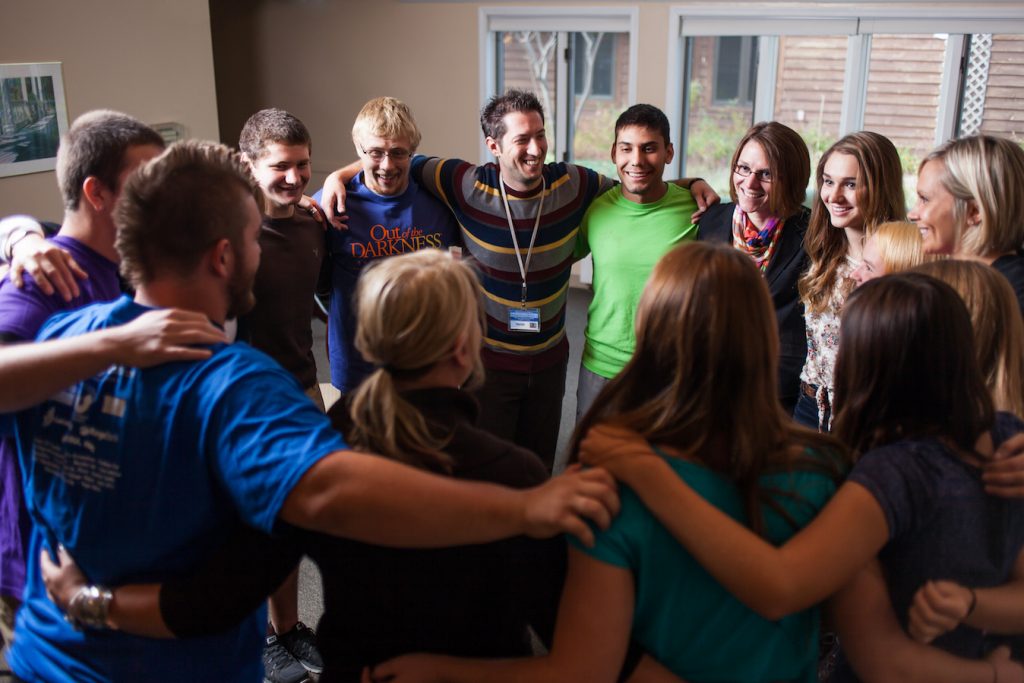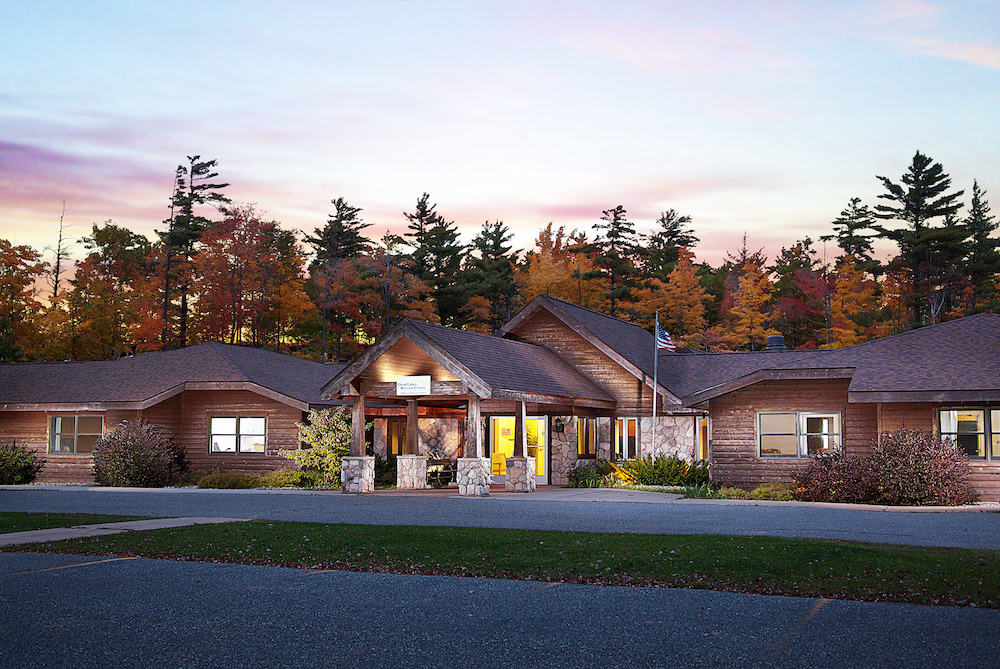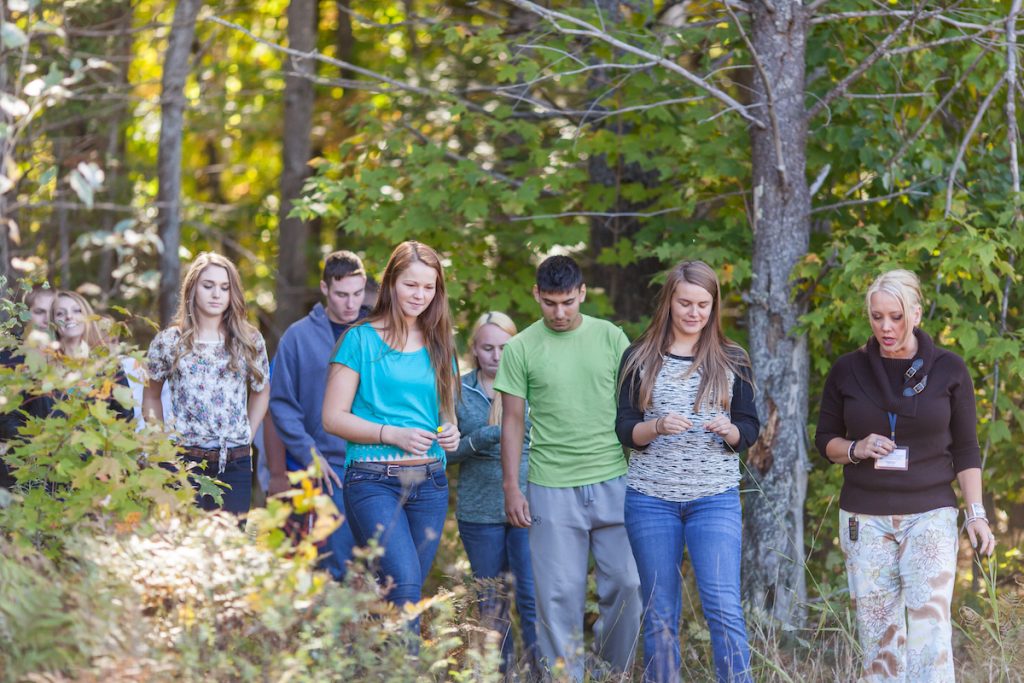Adolescent Services Center
GLRC's Adolescent Services Center is a 16 bed residential treatment facility for individuals between the ages of 12 and 17 with a substance use disorder, providing quality treatment and relapse-prevention services. It is located on 32 acres of land in Negaunee, MI.
The caring and empathetic staff are trained to support each client as the whole person, assisting them to meet their recovery goals. Staff provide clients with the skills necessary to engage in healthy relationships, address trauma, increase their awareness of personal responsibilities and maintain sobriety. Clients attend school on site, participate in two daily group therapy sessions and weekly individual and family therapy.
GLRC believes that the family should be involved in the client’s treatment stay. GLRC works to collaborate with caregivers to understand how to best help the child from their early recovery. Families will work with clinicians to understand how family dynamics may play a role in the adolescent’s recovery, develop communication skills necessary in recovery and help to transition the adolescent back home.
The Adolescent Services Center provides clients with a home-like experience during their stay, which includes:
- Social meal times
- Semi-private bedrooms with accompanying bathrooms
- Community living space, which includes a TV area
- Enclosed courtyard
- Outdoor basketball court
- Greenhouse
- Walking trails
- Healing Circle
GLRC provides an on-site classroom to allow clients to continue their education while in treatment. A certified Special Education teacher is employed by Marquette Alger Regional Education Service Agency (MARESA) to meet each client’s academic needs. GED testing is also available when appropriate.
Upon admission, a medical history and evaluation is completed. Comprehensive medical care is provided to residents to ensure they are up to date on medical and dental needs.
Adolescent Services Center has an in-house provider and nurse who attend to client needs, however external referrals for services are also made when appropriate.
For questions about Adolescent Services Center, call (906) 228-9696.
Treatment works. People recover.
What to Expect
Referral
Parents are encouraged to reach out and contact the Adolescent Services Center with concerns about their child. From there, you will be guided through our process for your child's stay at Adolescent Services Center.
Residential Treatment
Our staff are committed to providing residents with a safe, nurturing and stable environment to aid in a positive recovery experience.
Residential treatment includes therapy, educational services, medical services and community service learning projects.
Returning Home
When the time comes for your teen to come home, we will celebrate their accomplishments as a group recognize their completion of the program with a medallion and finally bid them farewell and encourage them to follow up with their counselors, attend outpatient sessions and come back to share their stories of success with new residents.
For questions about Adolescent Services Center, call (906) 228-9696.
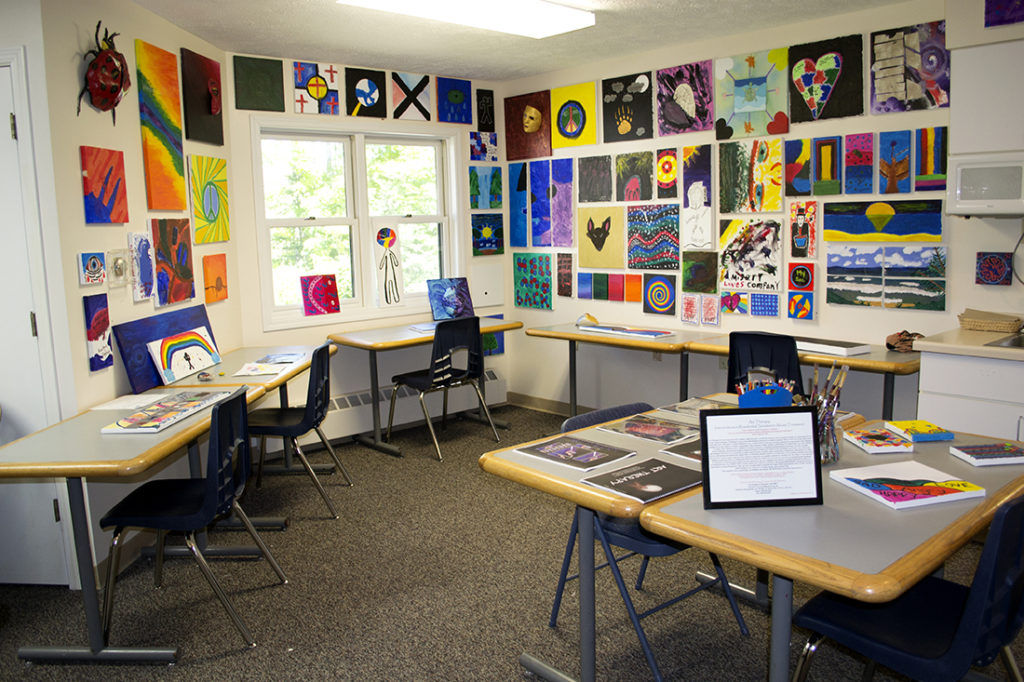
Art Expression
All clients participate in weekly art sessions as a form of non- verbal expression. Projects such as Mask-Making (focus: self-identity), “Hidden Voices: Childhood Trauma”, “The Thin Line Between Life and Death,” Mandalas (focus: peace, harmony, and connectivity), Missing Pieces, Heart box collages, “Stone Crazy” (intervention using stone and clay to mold images of self), and others are completed by clients, processed, and displayed. The benefits on expressive therapies are emphasized, allowing clients an avenue to communicate through non-verbal means. The art program is also utilized to provide an alternative coping strategy to deal with overwhelming emotions.
For adolescents who find it difficult to express their emotions due to traumatic events, painting in particular, can result in the physiological reduction of overwhelming emotions such as anxiety, hostility, anger, hopelessness and sadness. For those who are self-injuring and impulsively coping with overwhelming emotions based on an intolerable, incontrollable situation from which they feel they cannot escape, reinforcing non-verbal art expression can regulate emotions in a healthy way.
Educational Services
GLRC provides an on-site classroom to enable clients to continue their education while in treatment. The classroom environment is equipped with comfortable desk seating with an abundance of natural light and views of nature. A certified Special Education Teacher employed by Marquette Alger Regional Education Service Agency (MARESA) and a GLRC counselor are both designated to the classroom. This low adult-to-student ratio allows for sufficient monitoring and individual support.
The teacher is responsible for all lesson planning, teaching, testing, as well as coordination of communication and curriculum from the client’s originating district. Coordination of GED testing is also available when appropriate. In addition, MARESA facilitates the transferring of clients’ school records upon admission and discharge from treatment as well as providing the district to where the client is returning with academic recommendations.
During the treatment stay, weekly school reports are provided by the teacher to the Primary Counselors documenting classroom performance. Each client is assigned a laptop computer and headphones, when needed, at their workstation to enhance their learning experience. Computer are for academic use only and usage is closely monitored with security blocks from inappropriate websites and social media in place. The classroom is also equipped with a dry erase board, smart board, projector, and monitor for a variety of presentation methods. A MARESA School Psychologist is available for consultation, developing/monitoring an Individualized Education Program (IEP), and Special Education Testing, when needed. Books, learning materials, and all supplies for activities and transportation are provided by GLRC with assistance from MARESA.
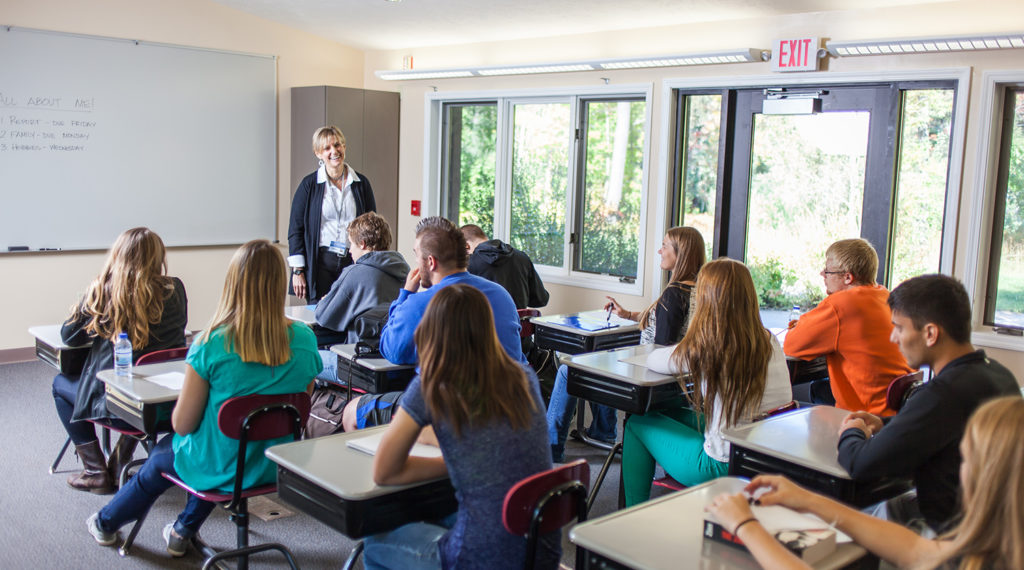
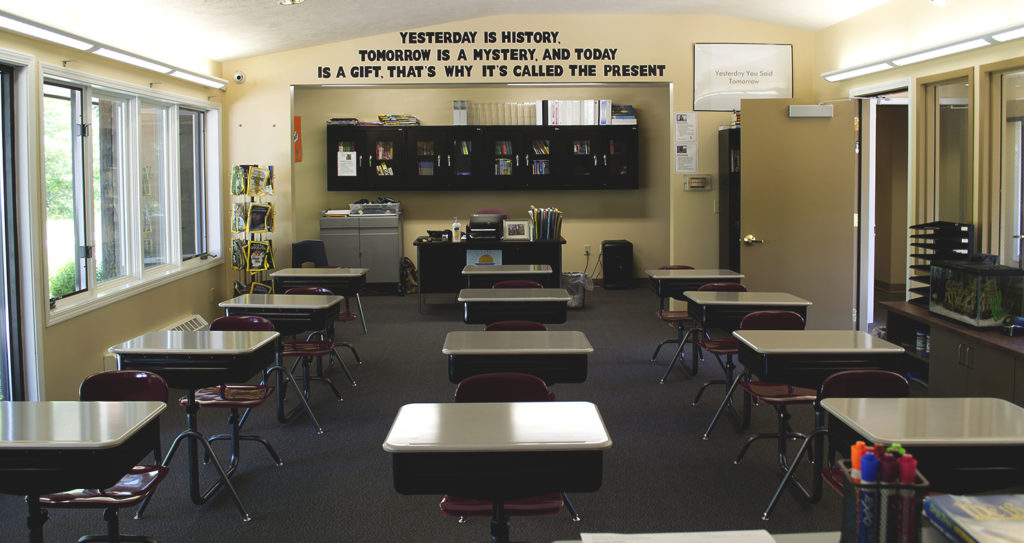
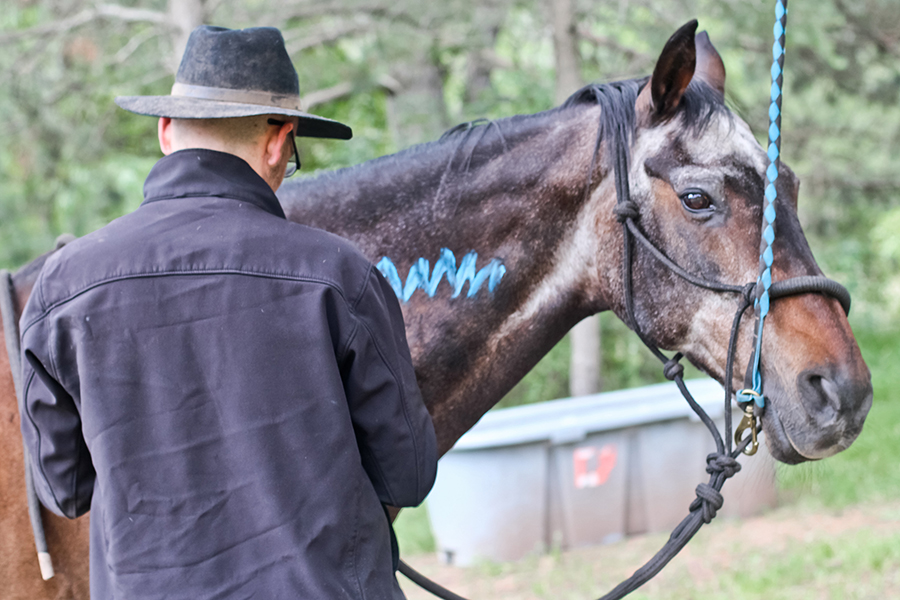
Equine-Assisted Therapy
Residents participate in our seasonal Equine-Assisted Therapy program at the nearby Heritage Hills. This is a distinctive experiential framework designed to allow clients the ability to discover, learn, and grow from their relationship with horses. The program is built on the premise that it’s the clients who best determine the kinds of life changes they need to make in order to improve their lives. The goal of equine-assisted therapy is to help the client develop needed skills and attributes, such as accountability, responsibility, self-confidence, problem solving skills and self-control.
Equine-Assisted Therapy involves no riding or horsemanship. Instead, it engages the clients in activities such as grooming, feeding, haltering and leading a horse, which is supervised and guided by a GLRC Mental Health Equine Therapist and a Heritage Hills Equine Specialist. Clients work directly with the horses, face-to-face, enabling them to better perceive the horses’ actions and reactions, as they work to process and solve their life challenges. Equine therapy also provides an innovative treatment milieu, which allows the therapist and client to identify and address a range of emotional and behavioral challenges.
Individual, Group and Family Therapy
Individual Therapy
Each client is assigned to a Primary Counselor who, among other duties, provides individual therapy to that client. Private offices are reserved for such sessions.
Group Therapy
All clients participate in several group therapy sessions per day which are either therapeutic or didactic in nature. These groups take place in a large group room filled with natural light and picturesque views of nature. This room is equipped with plenty of comfortable seating for group discussions as well as tables/chairs for workstations, when the group activity requires such accommodations. A dry erase board, monitor, computer access, and DVD player allow for a variety of presentations by the facilitator. All materials needed to assist in teaching and completing assignments are readily available and provided by GLRC.
Family Therapy
Upon admission, parents/guardians are given a Family Questionnaire to collect collateral information about the client as well as allow for family input into the treatment plan. This survey is later collected by the Primary Therapist and used in combination with client input for the development of the Family Assessment as well as the family portion of the Treatment Plan. The Primary Therapist maintains contact with parents/guardians regarding the resident’s progress and also facilitates Family Therapy Sessions and visits. Family Therapy sessions take place in the Primary Counselor’s private office.
In order to accommodate families who reside a long distance away, sessions can take place via virtual meeting.
Co-Occurring Disorders
Adolescent residential services are capable of addressing the co-occurring mental health needs of clients through enhanced programming and specialized clinical activities that address the client’s mental health symptoms and issues in order to maintain stabilization. Clients are provided with medication education and management, motivational and engagement strategies, in conjunction with evidence-based practices. Eye Movement Desensitization and Reprocessing (EMDR) Therapy is available for clients.
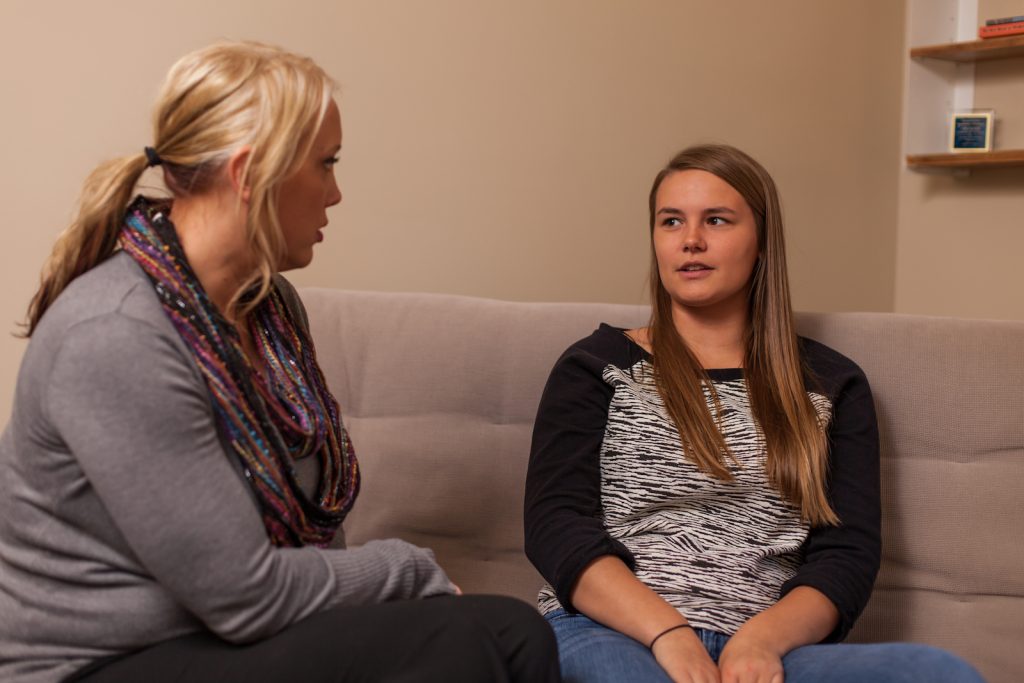
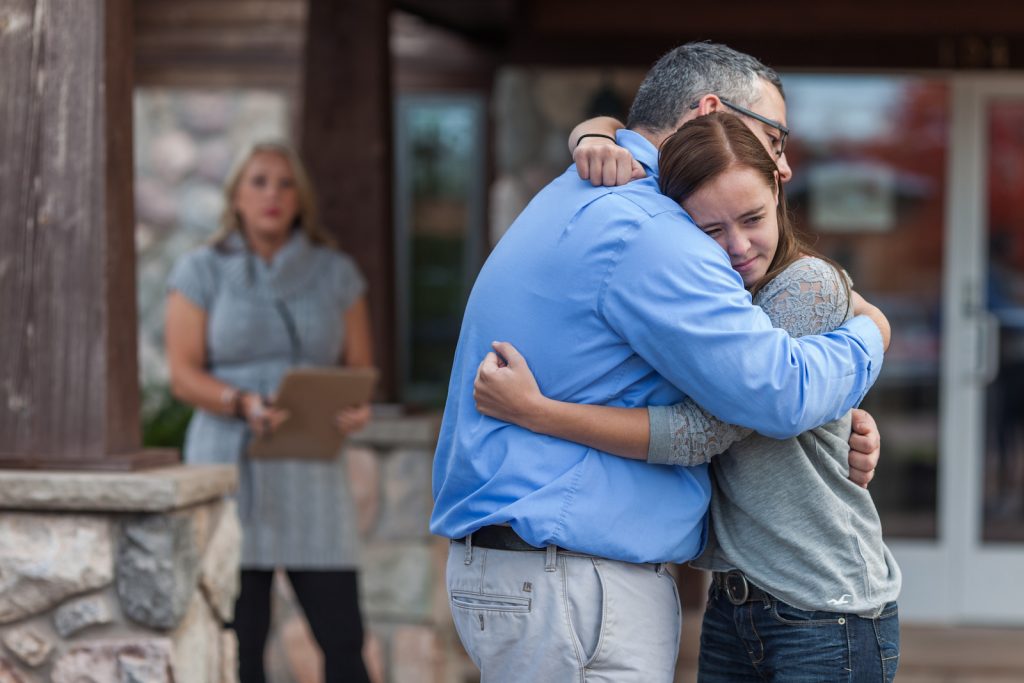
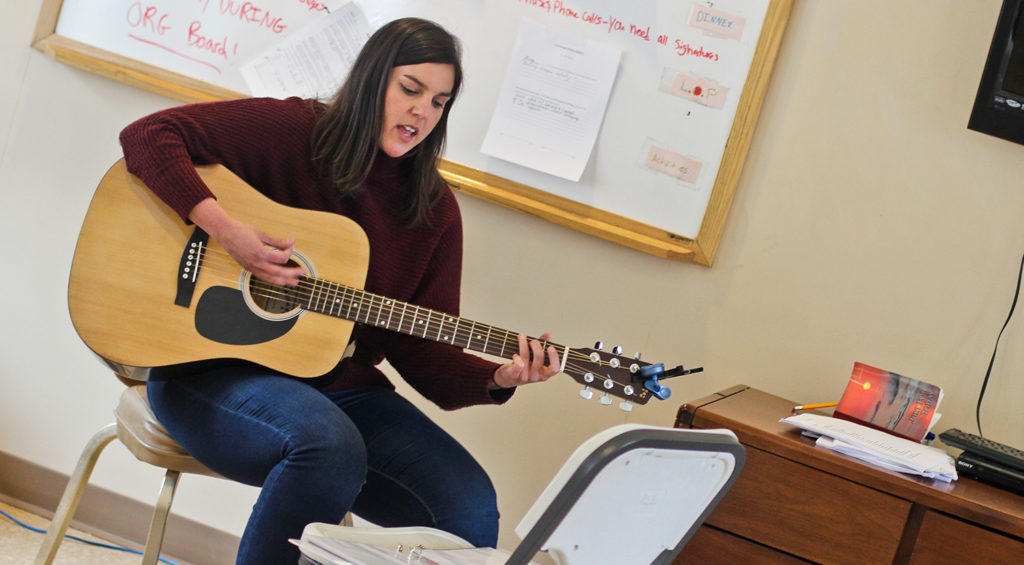
Music Expression
Musical expression applies the use of music interventions to accomplish individualized goals within a therapeutic setting. At ASC, music expression is utilized as a successful adjunct to other treatment services for clients to express themselves in a safe and secure environment. GLRC’s partnership with Music For All Kids allows residents to learn music from compassionate professionals through instruction, instruments, workshops and much more.
Goals include, but are not limited to: emotional expression, building positive coping skills, exploring personal feelings and therapeutic issues such as self-esteem or personal insight, making positive changes in moods and emotional states, having a sense of control over life through successful experiences, interacting socially with others, developing independence and decision making skills and adopting positive forms of behavior. Goals are addressed through the use of live musical play, including playing instruments, singing, song writing, musical improvisation, lyrical analysis, music listening, music, mindfulness and other interventions. At every session, clients are asked how the song or experience relates to their recovery and how music can be used as a tool or agent of change in their current stage of the recovery process.
Through Our Eyes
Through Our Eyes is a monthly program where the adolescent residents are mentored by local photographers. After viewing a slideshow from the previous month's session, learning about the current month's theme and viewing photos from the photographers, clients are separated into small groups, each containing a staff member and volunteer photographer. The groups then hike the 32 acres of land where clients are able to explore self-expression through photography.
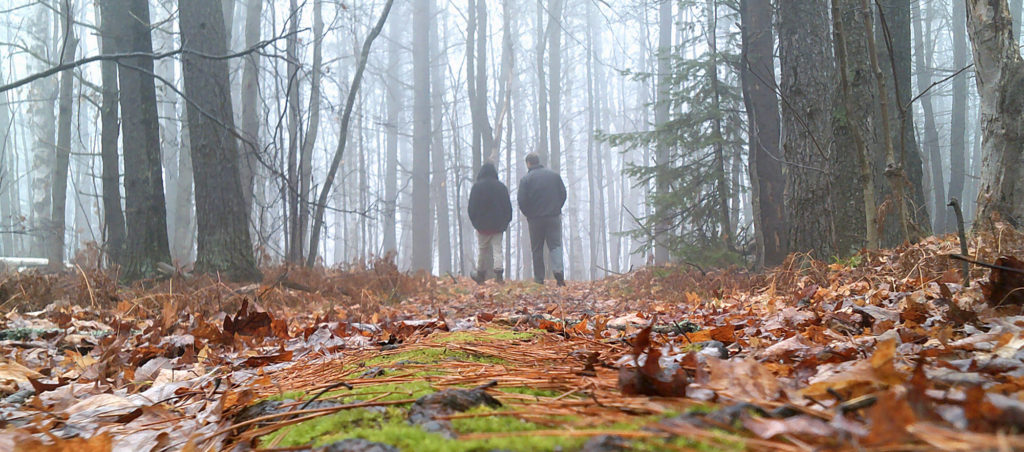
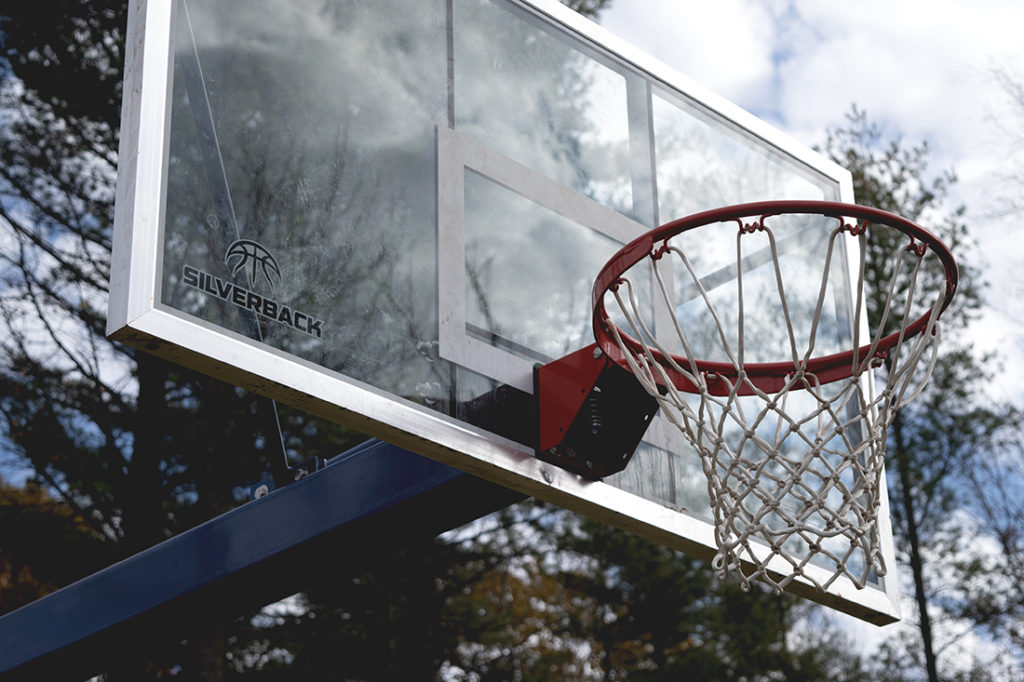
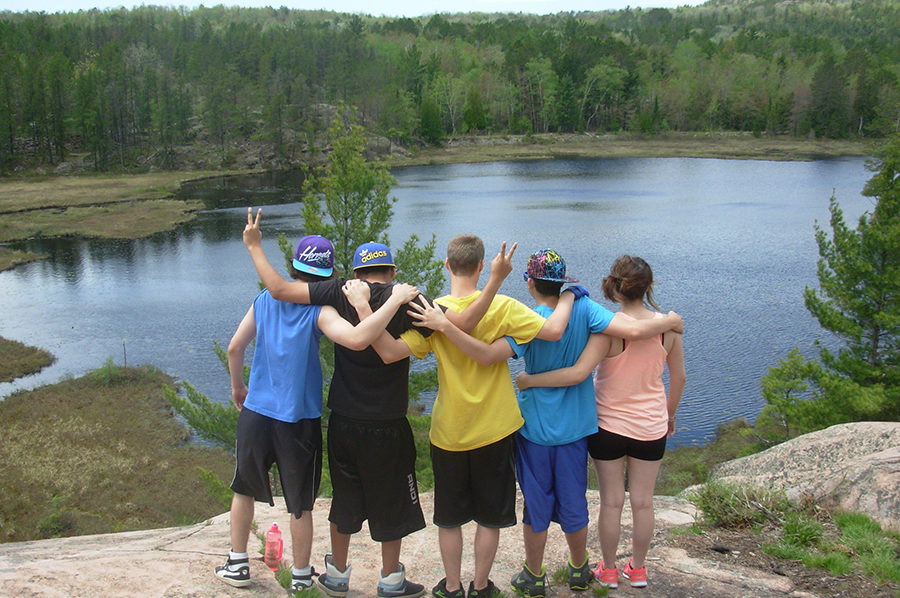
Recreational Therapy
Residents participate in recreation activities for the purposes of health and exploring positive recreational and leisure interests. Significant resources have been utilized to develop recreational aspects within the 32 acres of campus surrounding the Adolescent Services Center, including the hiking trails, Healing Circle, basketball court, and an extensive indoor work-out room. In addition to gym workouts, clients also participate in outdoor seasonal activities such as volleyball, basketball, Ultimate Frisbee, swimming, tennis, hiking, skiing, ice skating, snowshoeing, sledding, kayaking and more.
All transportation and equipment needed for recreational activities is provided by GLRC including activity fees if applicable. If a client lacks proper clothing for a particular activity, GLRC provides it whenever possible.
Bridges
The Bridges program connects the adolescent residents at the Adolescent Services Center with seniors from local assisted living communities for weekly fellowship (including: games, crafts and activities), fostering relationships based on unconditional positive regard. Additionally, this serves as an activity that teaches the adolescents about community involvement and serves as a safe place where they are not judged based on their past decisions.
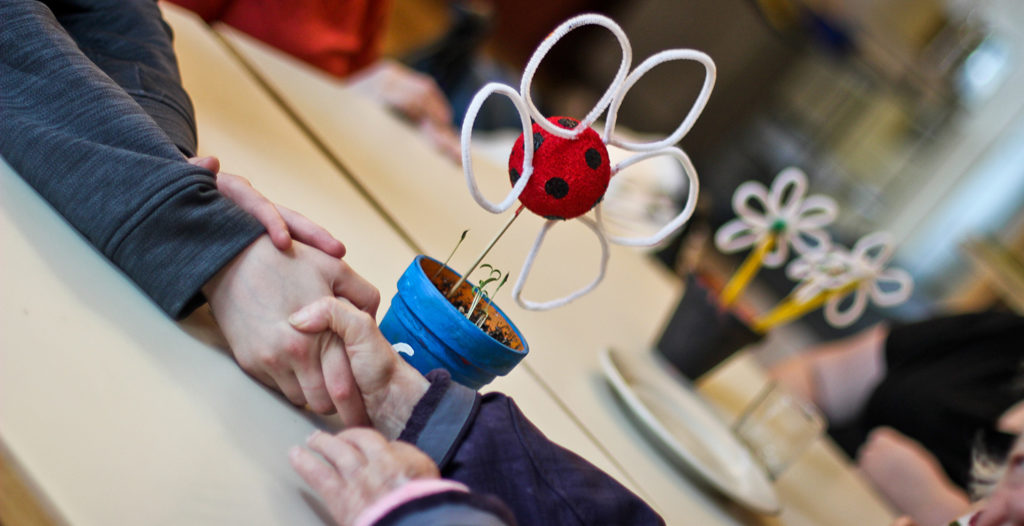

Service Learning
Often, the adolescents may not feel like valued members of their communities. Service Learning gives them the opportunity to do something positive in the community, giving them a sense of accomplishment. All clients perform community service projects that, not only benefit the community, but also impact the client following the PARC model: Plan, Action, Reflection and Celebrate.
These opportunities plant seeds of continued community service as clients transition back to their home communities. Service Learning projects range from working with senior citizens with special needs, building community gardens and reading to children in local day care centers.
Through ASC's facility garden, clients learn about sustainable gardening. Using the on-site gardens and greenhouse, clients plant and prepare their own produce for the season. With the addition of the greenhouse, the clients are able to begin growing their seedlings as early as February, with the growing season extended through October. Through gardening, clients have input into their nutrition, meal preparation, as well as learning valuable life skills.
Additionally, clients are able to participate in the Maple Syrup Project, which incorporates the plotting and tapping of maple trees, charting the sap production of each tree on collection days and countless opportunities for statistical work in the classroom.
Holistic Services
Clients participate in a variety of health and wellness activities to support holistic treatment. Clients are taught how health and wellness relate to their recovery, symptom management and overall health.
Clients are provided the opportunity to partake in a variety of complementary therapies to further enhance their treatment experience in the interest of healing and restoring balance in their lives. Aromatherapy using essential oils, meditation, guided imagery/visualization, foot baths and non-caffeinated herbal teas are offered throughout the treatment experience. A referral for chiropractic services is also available upon request with scheduling and transportation provided.
On-staff Acupuncture Detoxification Specialists provide auricular therapy which involves using acupuncture as a form of detoxification using specific acupressure points on the ears. This will aid clients in the detoxification process of their recovery, as well as promote relaxation and an alternative form of healing demonstrated to be beneficial with this population, especially when combined with other the treatments offered through the Adolescent Services Center.

For More Information
For admission to the Adolescent Services Center or for help determining the right care for you or a loved one, please contact:
Adolescent Services Center Leadership Staff
Derrick DePetro
Children's Services Director
(906) 228-4692 ext: 2407
Gabriel Rayner
Program Supervisor
(906) 228-4692 ext: 2402
Rachael Laurin
Clinical Supervisor
(906) 228-4692 ext: 2403
Adolescent Service Center is CARF provider accredited.


